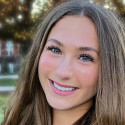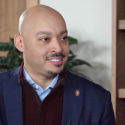Darwin’s Day: Making the case for evolution
Biologists, obviously, have the biggest stake in the public’s ability to comprehend and appreciate Darwin’s famous theory of evolution. Witness recent events in Pennsylvania and Kansas, where a couple of school boards tried mightily to inject alternative ideas of creation into the science classroom.
But it could be that biologists themselves have contributed to the fact that a sizeable portion of the public in the United States rejects evolution and its two main postulates: that very different organisms come from common ancestors and that the predominant mechanism explaining change over time is natural selection. Biologists have been so uniformly convinced by the truth of evolution that they have often failed to articulate convincing, evidence-laden arguments for it.
But now, just in time for Charles Darwin’s 197th birthday, an eminent group of UW–Madison faculty have joined forces to make the case for the iconographic scientist and what they consider to be biology’s prevailing central idea. The evidence will be presented at Darwin Day, a daylong public symposium on Feb. 11 (the day before Darwin’s 197th birthday) on the UW–Madison campus.
“When we teach evolution, we don’t typically teach the evidence for evolution,” explains UW–Madison botany Professor David Baum, an organizer of the event.
A physicist teaching an introductory physics class, he explains, won’t spend much or any time with students poring over the evidence for atomic theory. They just teach it. It’s taken for granted. The same, he says, is true for many biology lessons dealing with evolution.
“In the case of evolution, we have to do a better job of showing why we accept it and why the evidence is so overwhelming,” says Baum. “We can bring a lot more meat to the argument.”
The Darwin Day symposium, which is free and open to the public, will be held on Saturday, Feb. 11 from 9:15 a.m. to 4:30 p.m. in Room B10 Ingraham Hall, 1155 Observatory Drive. Among others, featured speakers and topics include:
- Geologist Dana Geary, who will speak on the fossil record;
- Botanist Kenneth Sytsma, who will speak on biogeography and classification;
- Molecular biologist Sean Carroll, who will speak on development in animals;
- Horticulture Professor Irwin Goldman, who will discuss artificial selection;
- Biology professor Carol Lee, who will weigh in on instances of rapid natural selection;
- Botanist Tom Givnish, who will talk about adaptive radiation and island evolution;
- Philosophy professor Elliot Sober, who will talk about argument by design.
The overarching purpose of the event, according to Baum, is to share the evidence accumulated by Darwin himself, and the mass of evidence that has been gathered by scientists in the intervening 150 years since the theory was first published.
Baum says the event, which has existed at UW-Whitewater for a number of years already, is likely to become an annual affair at UW–Madison.
“We’re not trying to convert anybody,” he says. “We just want to show more of the evidentiary basis that justifies the position and present some interesting biology en route.”
Tags: biosciences



